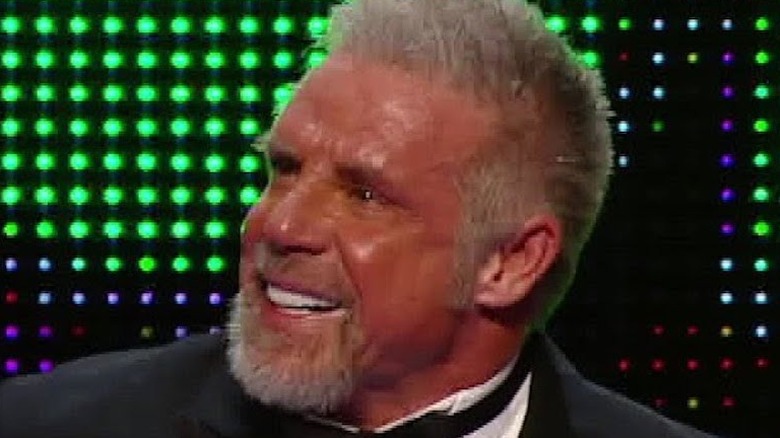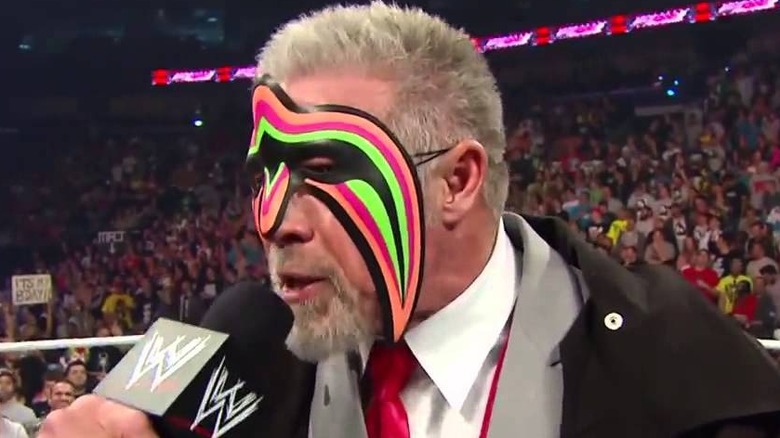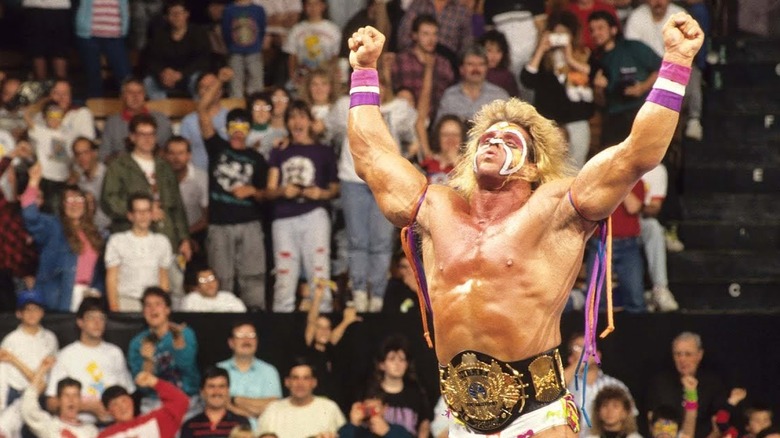All The Details Found In The Ultimate Warrior's Autopsy Report
Of all the wrestlers who were ever billed as being from "Parts Unknown," The Ultimate Warrior is quite possibly the greatest. Of course, "Parts Unknown" was actually the American Midwest (Indiana, to be specific), and the man who would eventually be known by the legal name Warrior was born James Brian Hellwig. There's also the matter of his lack of technical wrestling ability and in-ring finesse, as well as the negative comments he made later in life about the LGBTQ community and the victims of Hurricane Katrina, among other topics (via Vice). Oh, and good luck figuring out what he was trying to convey in his promos. But he possessed loads of charisma, had the most energetic ring entrance by far (with the theme song to match) during his WWE heyday, and his win over Hulk Hogan at WrestleMania VI in 1990 is still considered a classic passing-of-the-torch moment.
After burning his bridges with WWE chairman Vince McMahon one too many times, it was once thought that there was no way we'd ever see Warrior in the company's Hall of Fame. But on April 5, 2014, he was inducted into that year's Hall of Fame class, and on the April 7 episode of "Monday Night Raw," Warrior thanked his fans in a promo that has since become foreboding and eerie in hindsight. Just one day later, he suffered a fatal heart attack and died at the age of 54. All past controversies aside, there was no doubt his death shocked and saddened wrestling fans across multiple generations.
Warrior's autopsy detailed the specifics of his heart disease
According to The Ultimate Warrior's autopsy report from the Maricopa County Office of the Medical Examiner in Arizona, the legendary wrestler was found to have atherosclerotic/arteriosclerotic cardiovascular disease, with the specifics of his condition including a diagnosis of cardiomegaly, or an enlarged heart. The report noted that Warrior's heart weighed 650 grams at the time of his death, which is more than twice the average weight of an adult male heart (10 ounces, or 283 grams, per WebMD). Atherosclerotic stenosis was also found in several parts of his heart, with luminal narrowing at around 50% to 60%. In other words, this means a narrowing of the arteries in question, thus limiting the flow of blood and increasing the risk of stroke.
Among the many other details listed, Warrior had pulmonary edema, or excess fluid in the lungs, and had a "history of witnessed sudden collapse with immediate apnea and pulselessness," which contributed to how quickly he died after his heart attack.
On the fourth page of the report, Warrior's unembalmed body was described as measuring 73 inches long — fairly consistent with his billed height of 6-feet-3-inches — and weighing 226 pounds. The latter figure may come as a surprise, considering how Warrior was usually billed at 275 pounds (via Cagematch). But other than the aforementioned cardiovascular and pulmonary issues, Warrior seemed to be in otherwise good condition for a man his age.
Warrior's recent health issues were also mentioned in the report
Toward the end of the autopsy report, in the Final Summary section, the Maricopa County Office of the Medical Examiner detailed what happened right before The Ultimate Warrior passed away, as shown in surveillance video clips. The summary described how the former WWE Champion was seen walking slowly and holding on to a rail before he abruptly collapsed, clutching his chest and not doing anything to break his fall — a sign that he immediately fell unconscious at that point. Warrior was then pronounced dead shortly after arriving at a local hospital.
The report also cited previous stories about the last few days of Warrior's life. In the three days immediately preceding his death, Warrior was feeling ill, though he thought he simply had pneumonia. His symptoms then worsened after he flew from New Orleans — where the Hall of Fame induction ceremonies and WrestleMania 30 were held — to Phoenix. Supposedly, Warrior was suffering from a "productive" cough, severe fatigue, and breathing difficulties, and he and his wife were planning to seek medical attention ahead of WrestleMania weekend. It was said that the ex-wrestler had recent prescriptions for Vyvanse (an ADHD treatment) and hydrocodone (a pain reliever), as well as a "significant" history of sleep apnea, congestive heart failure, and chronic anterior horn cell disease.
As Warrior was one of several wrestlers accused of taking performance-enhancing drugs during Vince McMahon's infamous steroid trial in the early '90s, the report stressed that he didn't have any past history of alcoholism or illegal drug use, save for his "reported possible anabolic steroid use in the 1980s."


